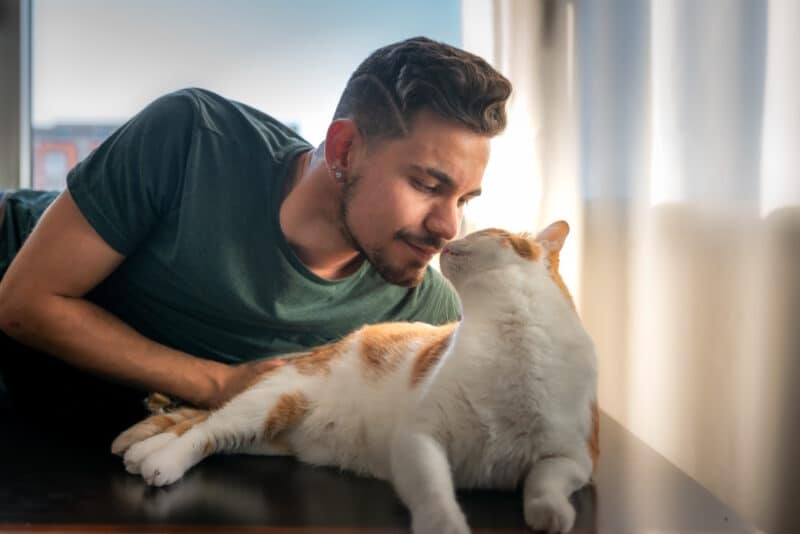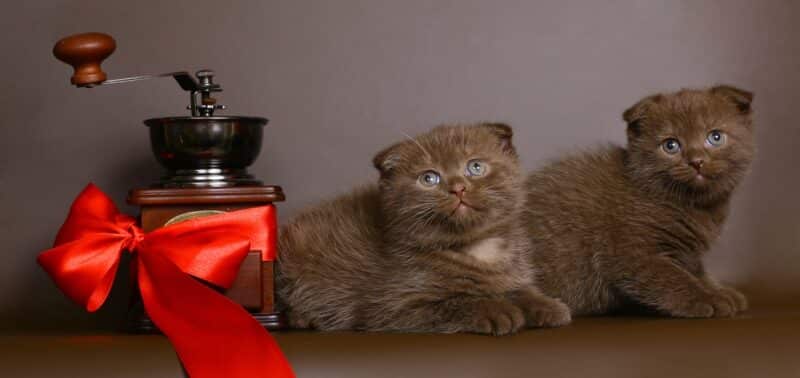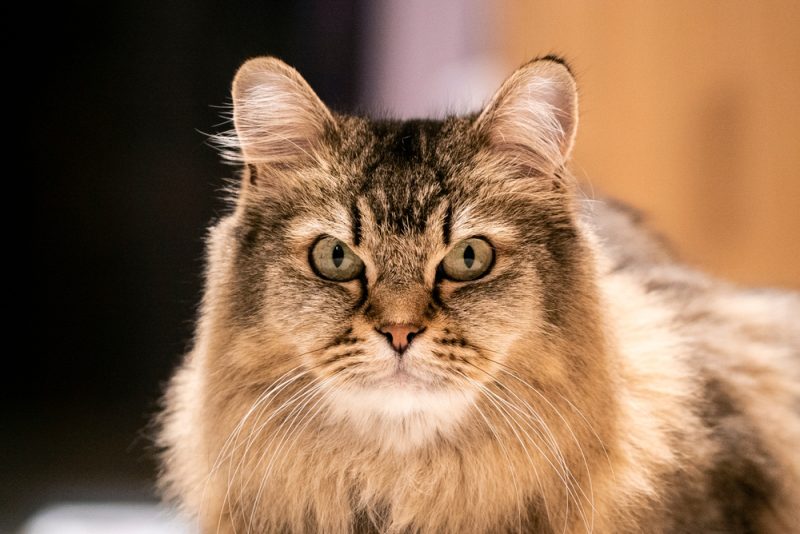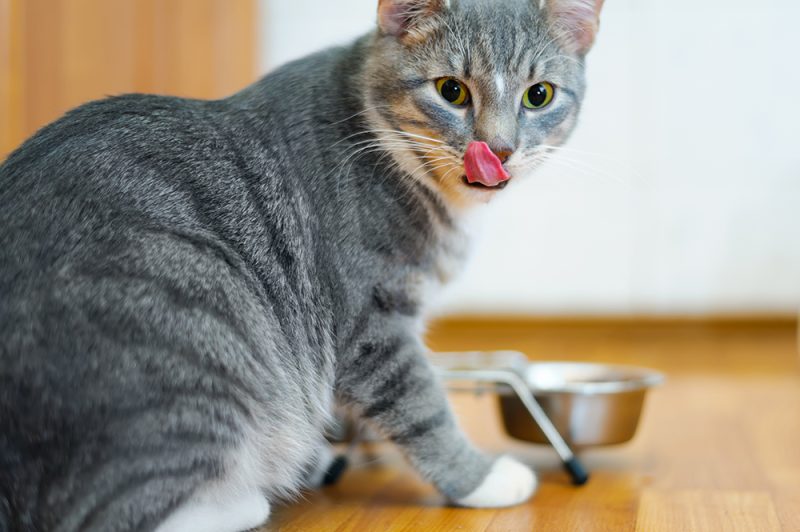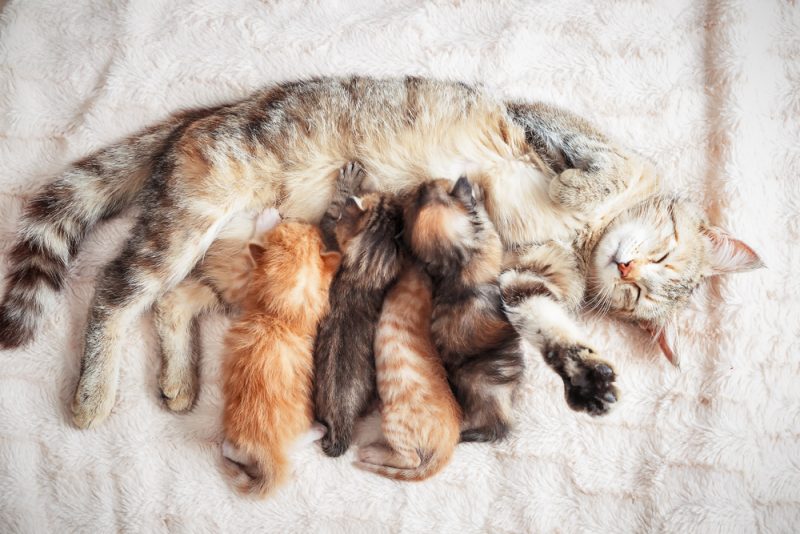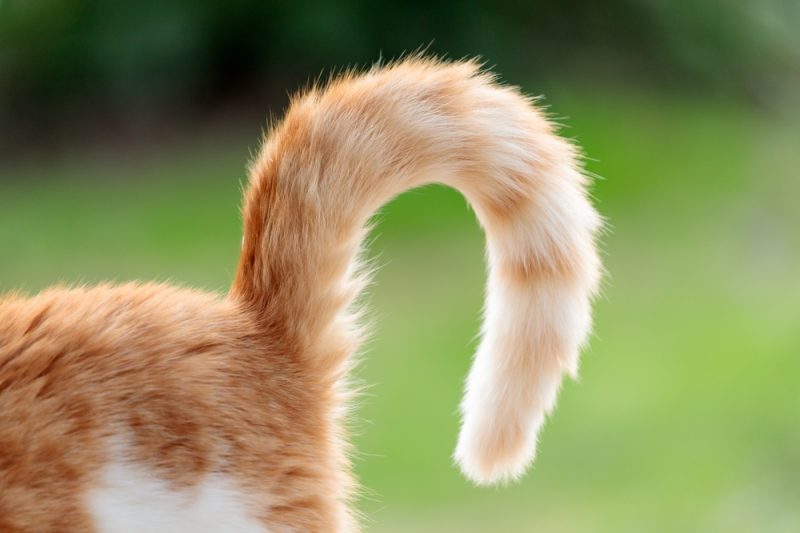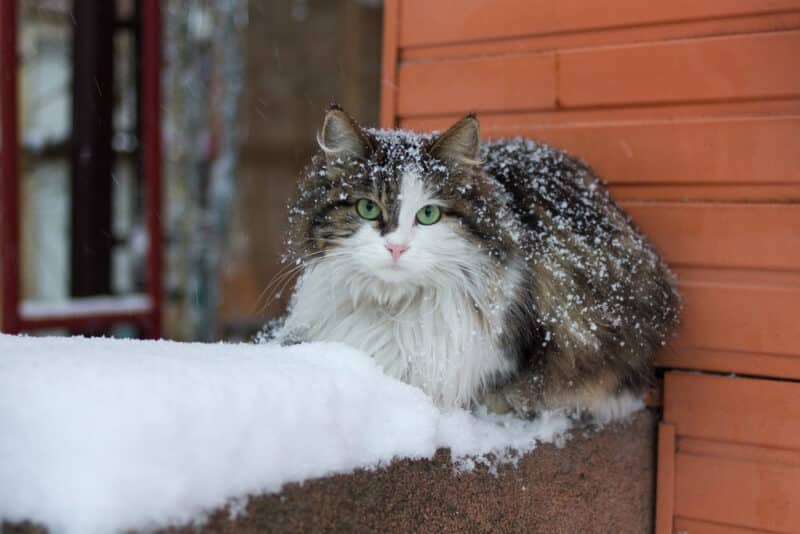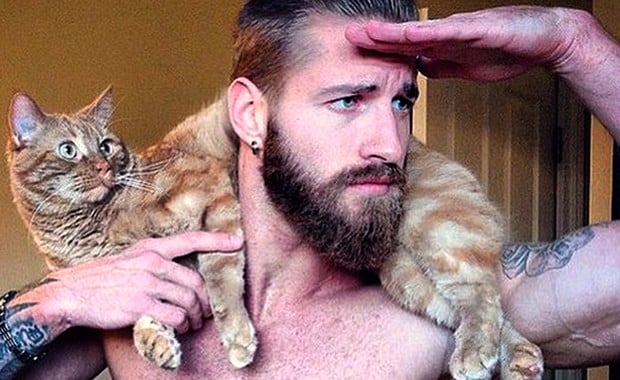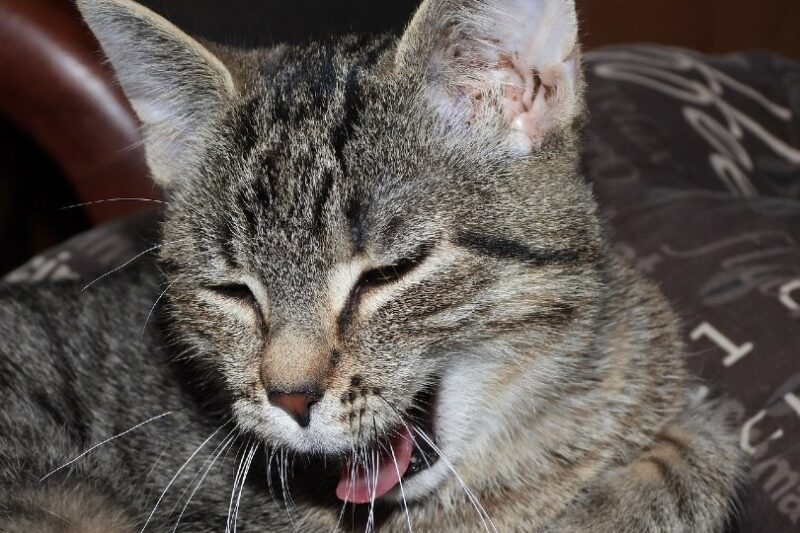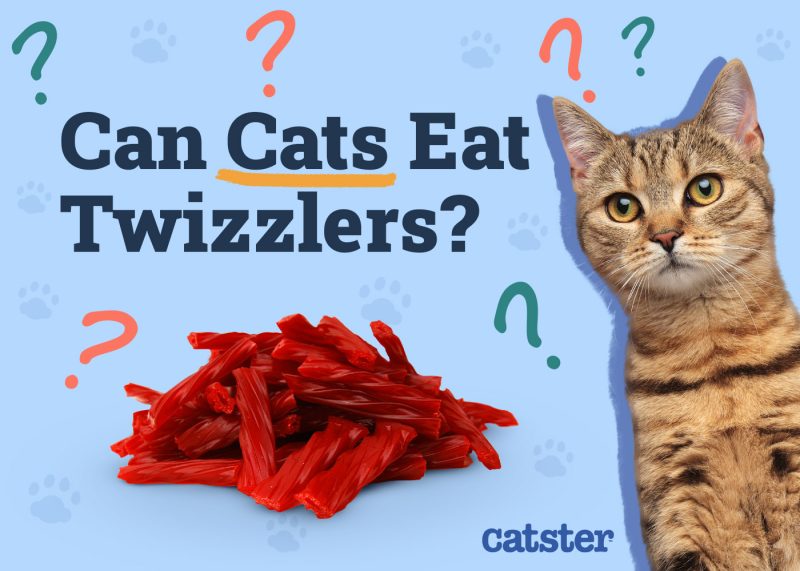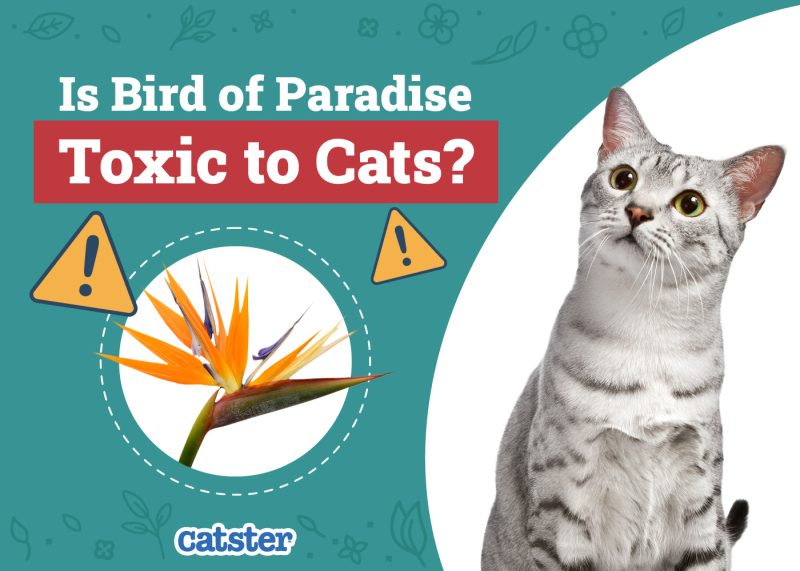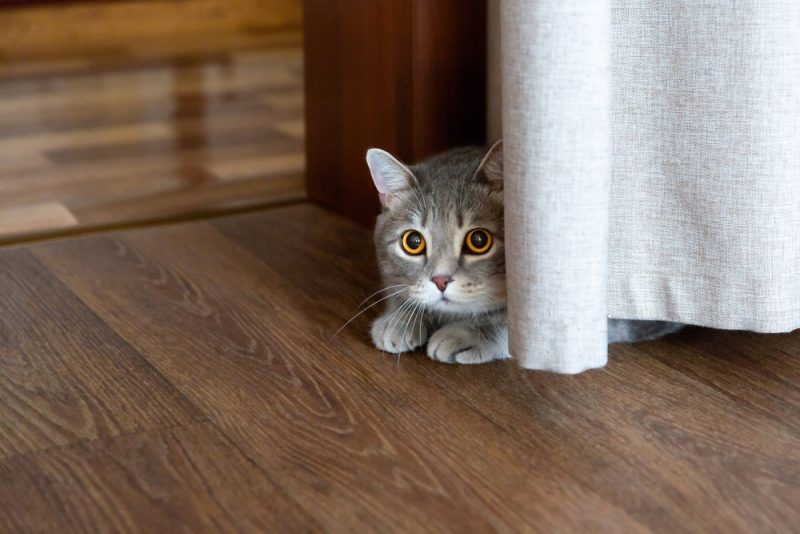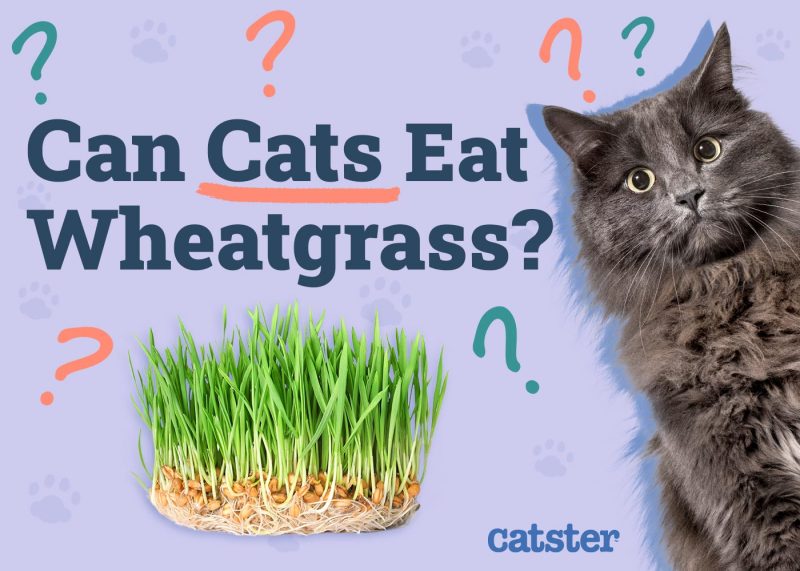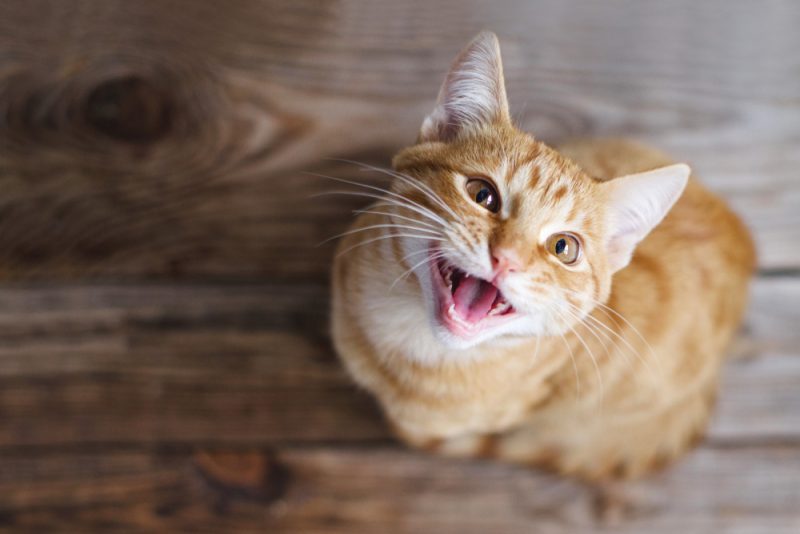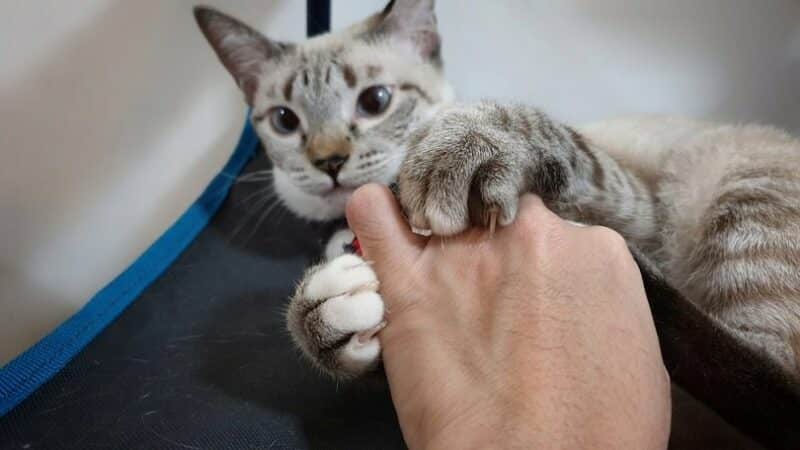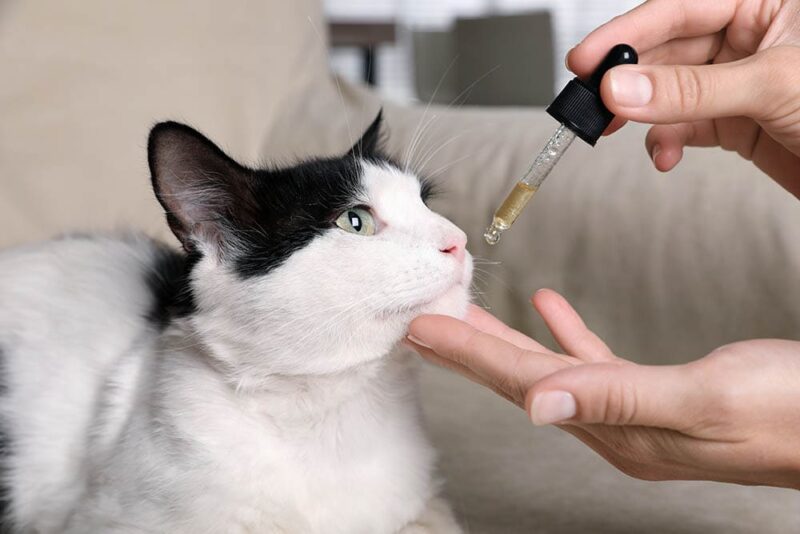A cat that smells like maple syrup may sound pleasant, but in reality, it could be an indicator of a medical issue. If your cat smells like maple syrup, we’re glad you’re here because we will discuss the three possible reasons your cat smells good enough to put on pancakes.

The 3 Reasons Your Cat May Smell Like Maple Syrup
1. Diabetes Mellitus
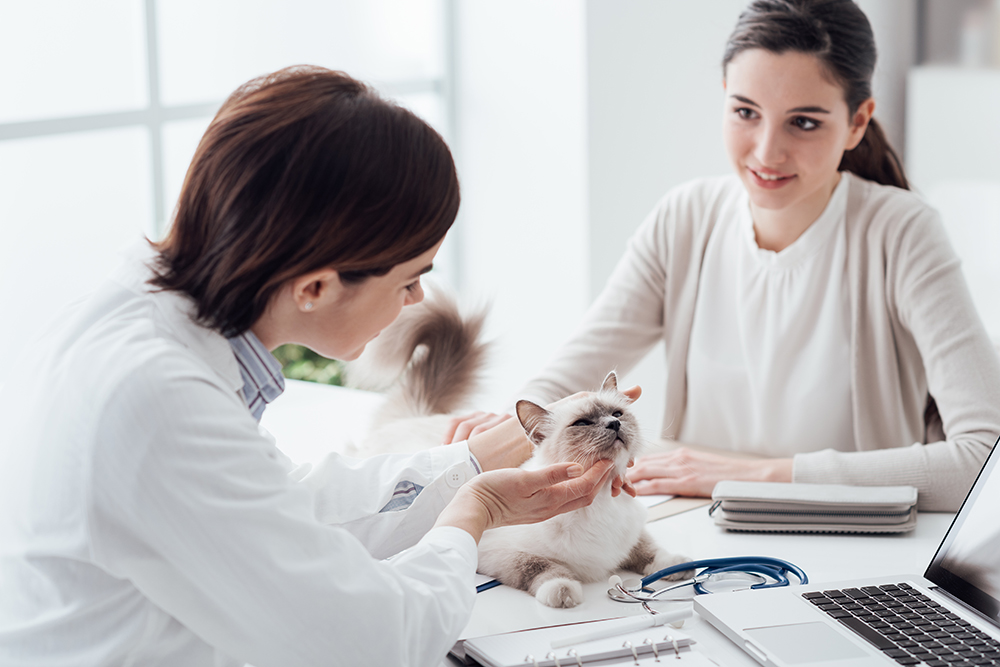
It’s estimated that 0.2% to 1% of cats will be diagnosed with diabetes in their lifetime.1 Some cats are more at risk than others, with cat obesity being a prime reason cats develop the disease.
There are two common types of diabetes: type I and type II. Type I diabetes is where the pancreas is unable to produce insulin (dogs usually suffer from this type of diabetes). Type II diabetes (which is the most common type of diabetes found in felines) refers to an insulin deficiency in which the pancreas produces sufficient amounts of insulin; however, the tissues are not able to use it for glucose metabolism.
A cat with diabetes that is undiagnosed and therefore untreated, or a cat that is on treatment but whose treatment becomes insufficient (usually due to another disease process increasing the body’s need for more glucose) can enter a state of diabetic ketoacidosis (DKA). This is a severe and life-threatening complication of diabetes mellitus and requires urgent veterinary care. Cats that are entering a state of DKA can emit an unusual, sweet-smelling scent from the breath due to ketone production (formed from the breakdown of fat as an alternative energy source), which is why some cats may smell like maple syrup with the condition. Sweet-smelling breath won’t be the only sign of a cat in DKA; other signs may be a lack of appetite, lethargy, vomiting, weight loss and an increase in drinking and urination. If you notice anything that indicates your cat isn’t well, make an appointment with your vet as soon as possible.
If you need to speak with a vet but can't get to one, head over to PangoVet. It's an online service where you can talk to a vet online and get the advice you need for your pet — all at an affordable price!

2. Chronic Kidney Disease
If your cat suffers from chronic kidney disease (CKD), a sweet odor could emit from the mouth, or it could cause more of an unpleasant ammonia odor. This disease is more often seen in mature and senior cats and affects an estimated 30–40% of cats over 10 years of age. It’s estimated that 81% of cats diagnosed with chronic kidney disease are over 15 years of age, but cats younger than 10 years of age have been diagnosed.2
Chronic kidney disease is a gradual deterioration of the function of the kidneys. Over time the kidneys can no longer efficiently remove waste products from the blood, nor can they play their part in concentrating the cat’s urine, so that a larger amount of inappropriately dilute urine is produced, causing the cat to become severely dehydrated. With the build up of waste products in the blood comes a condition known as uremia, which is usually a sign of end-stage kidney disease. The urea in the blood can sometimes cause a cat’s breath to smell slightly sweet, but in an unpleasant way.
3. Skin Conditions
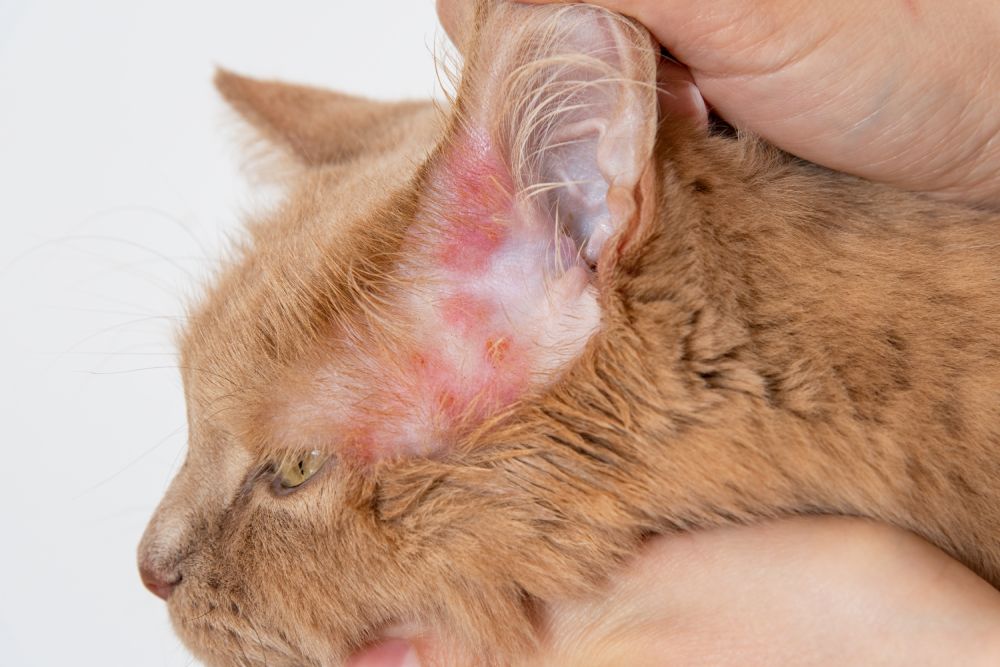
It’s not always a cat’s breath that may smell like maple syrup; the fur can also emit this sweet odor and could be from your cat simply brushing up against something that smells sweet.
Yeast infections can alter a cat’s body odor as well, with certain bacterial infections being more of the cause of a sweet smell. If you smell this sweet odor on your cat’s fur, take them to the vet, as the infection may well need treatment. It could also be that the skin condition is secondary to a more systemic (whole body) disease which will need diagnosing and treating as soon as possible.

Conclusion
Diabetes is by far the most common reason a cat can develop a maple syrup smell. When researching this issue, you may find a possible explanation: Maple Syrup Urine Disease (MSUD), a disease that prevents the body from processing certain amino acids, causing a harmful buildup of substances in the blood and urine. However, we found no known cases of cats developing this rare disease, only humans and cattle.
Kidney and urinary problems can also be the cause of the sweet odor. The key takeaway is to take your cat for a checkup if you smell this sweet smell, as it could be something serious going on that needs to be addressed immediately.
Featured Image Credit: Magui RF, Shutterstock
